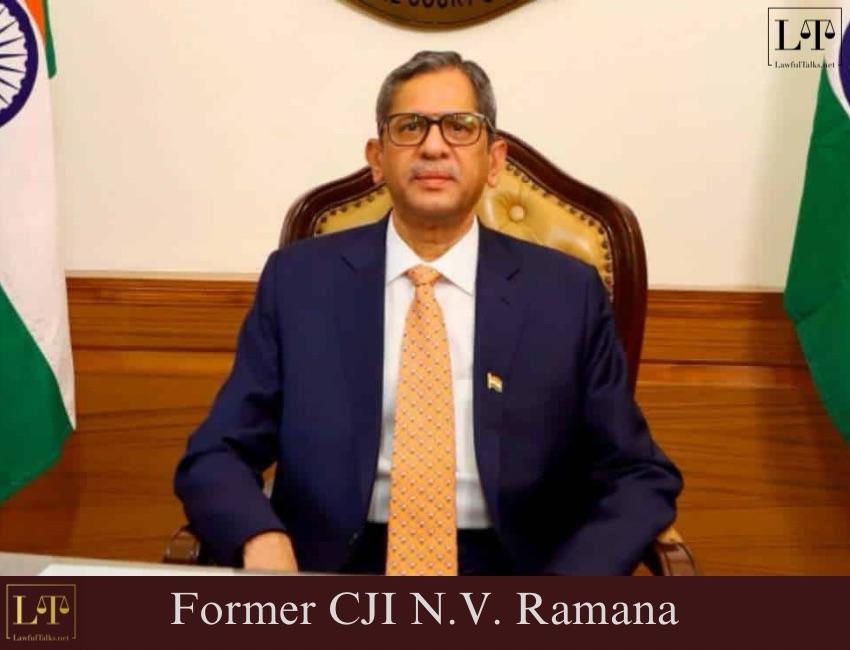Allahabad HC Sets Aside Afzal Ansari's Conviction, Allows Him to Continue as MP

Former Chief Justice of India, Justice N.V. Ramana, in a thought-provoking address at the 5th Convocation of VIT-AP University, revealed that his family was subjected to criminal cases as part of a strategy to “coerce” him. Reflecting on the challenges moral judges face, he observed that members of the judiciary who stood firm on constitutional values often encountered “pressure and persecution.”

Without naming anyone, Justice Ramana’s comments were clearly linked to the political unrest that arose when the previous Yuvajana Shramika Rythu Congress Party (YSRCP) government proposed the “three capitals” plan for Andhra Pradesh. Under this plan, Visakhapatnam would be the administrative capital, Amaravati the legislative capital, and Kurnool the judicial capital. The move overturned the earlier decision to make Amaravati the state’s only capital and led to widespread protests by farmers who had given their land and support for Amaravati’s development.
Justice Ramana said the pressure he faced was connected to that controversial episode. “Families of judges who had no role became collateral to political organisations.” Sharing his personal ordeal, he said, “All of you present, most of you present here, know how my family was targeted and criminal cases were filed against them. All this was done only to coerce me, and I was not alone.”
He further connected this experience to the struggles of the farmers, stating, “During that difficult phase, all those who empathised with the cause of the farmers faced intimidation and coercion.”
Acknowledging the unwavering support of the legal fraternity during those tough times, Justice Ramana noted, “In such times, when many political leaders hesitated to take a stance or remain silent, it was the jurists, lawyers, and the courts of this country who stood by their constitutional promise.”
He went on to emphasize the lasting importance of the judiciary in a democracy. “While governments may change, the courts and rule of law remain the anchor of stability. And the rule of law survives only when people repose their public trust, decline to surrender their integrity for convenience.”
Recalling his emotional bond with Amaravati, Justice Ramana saluted the perseverance of the farmers who resisted the state’s “three capitals” proposal. “I salute the spirit of the farmers of Amaravati, who courageously withstood the forces of government mechanism. I draw a lot of inspiration from the farmers’ struggle. I also thank them for reposing their trust on the judicial system and the democratic process.”

Anam Sayyed
4th Year, Law Student
Latest Posts
Categories
- International News 19 Posts
- Supreme Court 390 Posts
- High Courts 383 Posts



















































































































































































































































































































































































































































































































































































































































































































































































































